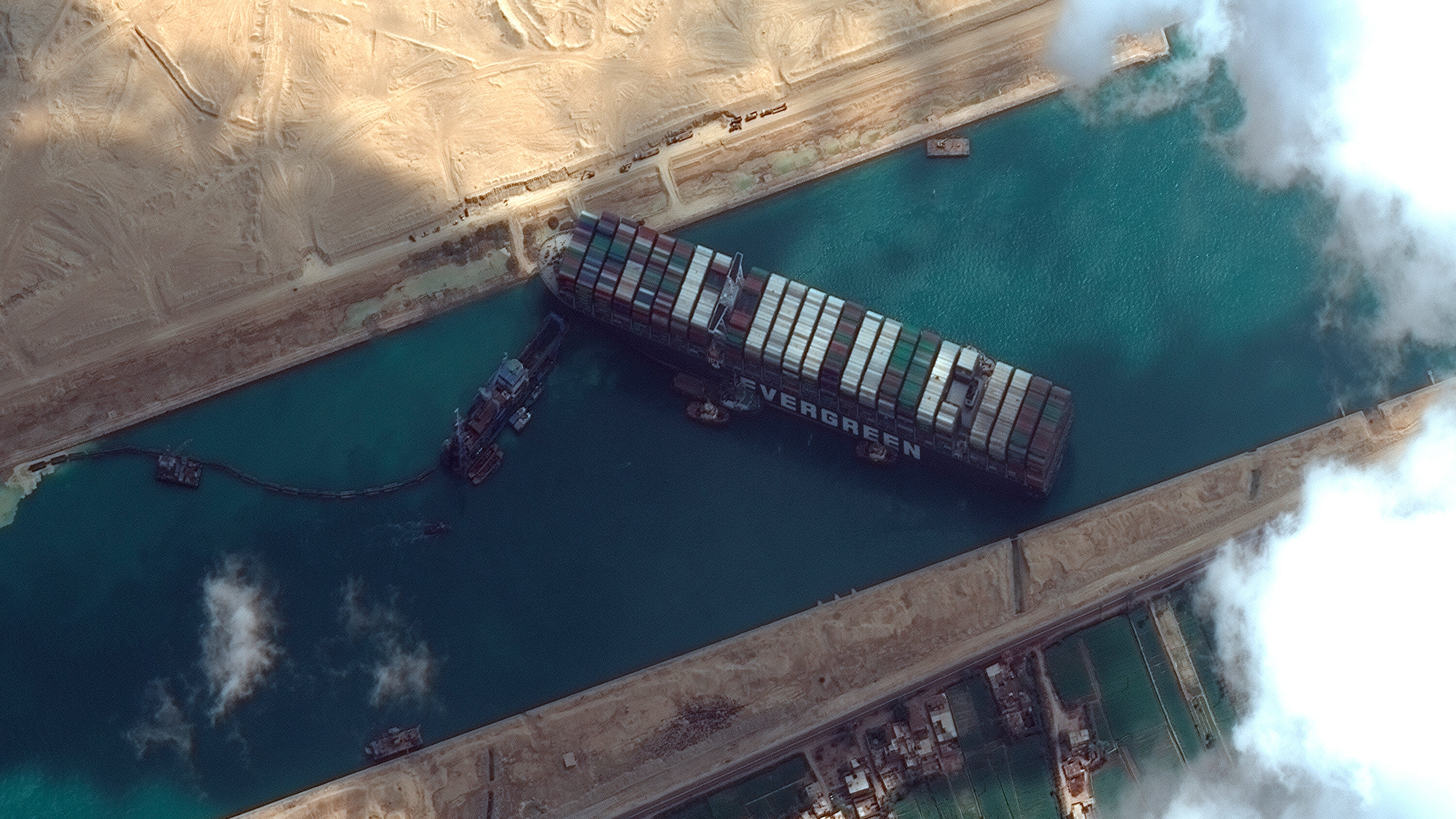5364
0
The Suez Crisis has put the global supply chain in a more difficult situation
The stranded ship Ever Given in the Suez Canal will make the already difficult situation in global supply chains even more difficult.

Yazar: Tom Roberts
Yayınlanma: 27 Mart 2021 19:35
Güncellenme: 3 Mart 2026 10:21
The Suez Crisis has put the global supply chains in a more difficult situation
The stranded container ship Ever Given in the Suez Canal will make the already difficult situation in global supply chains even more difficult, Moody's analysts believe. Even before the accident, they were significantly burdened by the rapid recovery of economic activity. The 400-meter-long Ever Given, which was on its way from China to Rotterdam, crashed in the Suez Canal on Tuesday due to bad weather. Since then, it has blocked traffic on the shortest shipping route between Europe and Asia. Work is still being done to remove the stranded ship, but experts do not rule out that it may take weeks. The canal provides about 30% of global container transport per year. According to the Egyptian authorities, at least 18,000 ships will use it during this period. The accident occurred in a situation where the demand for goods, the supply of which was limited by the pandemic of the new coronavirus, is increasing sharply. Demand is growing from both companies and consumers, while container transport capacity is limited. Just last year, China overtook the United States in the ranking of Europe's largest trading partners. The importance of the Suez Canal as the shortest shipping route between Europe and Asia has thus increased. "Under these circumstances, supply chains are sensitive to any, even the smallest external problem. The accident could not have occurred at a worse time," analysts said. The blockade of the Suez Canal prolongs not only the supply of goods to Europe, but also the return of empty containers to Asia, which will again extend the time for further deliveries to Europe. Even before the Ever Given accident, the high growth in demand for goods caused a problem with shipping containers.İLGİLİ HABERLER





European stocks soared and focus shifted to German retail sales after Powell's speech!

Forex Signal For TRY/USD: Inflation Slowdown in November.

Forex Signal For GBP/USD: Bullish Trend Still Not Breaking While Recovery Continues.

Forex Signal For EUR/USD: Starry US Data Points to Higher Fed Increases.

Forex Signal For BTC/USD: Downside Continues as Bitcoin Recovery Moves Less.
En Popüler Haberler
Yorum Yap
Yorumlar
Henüz yorum yapan yok! İlk yorumu siz yapın...